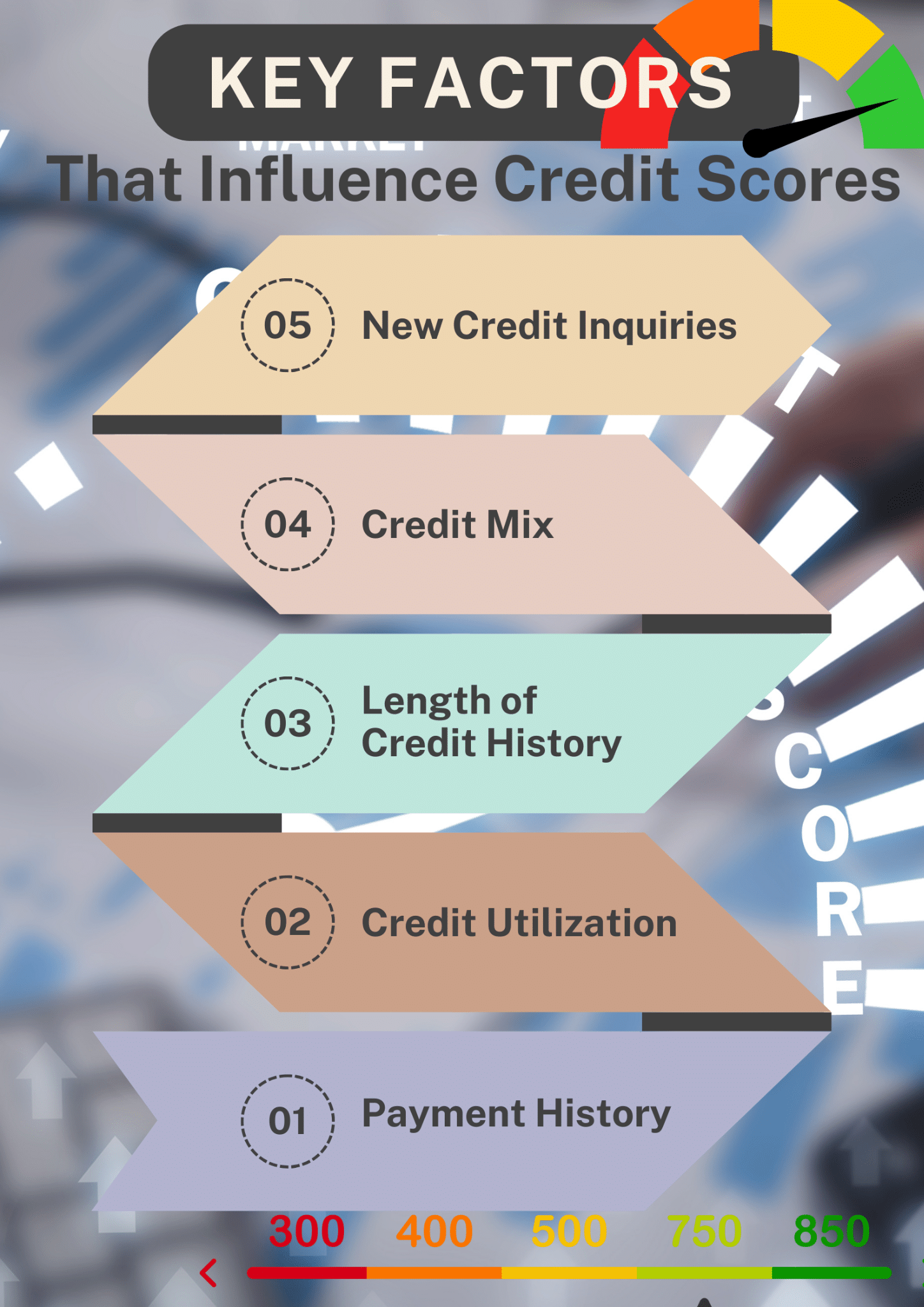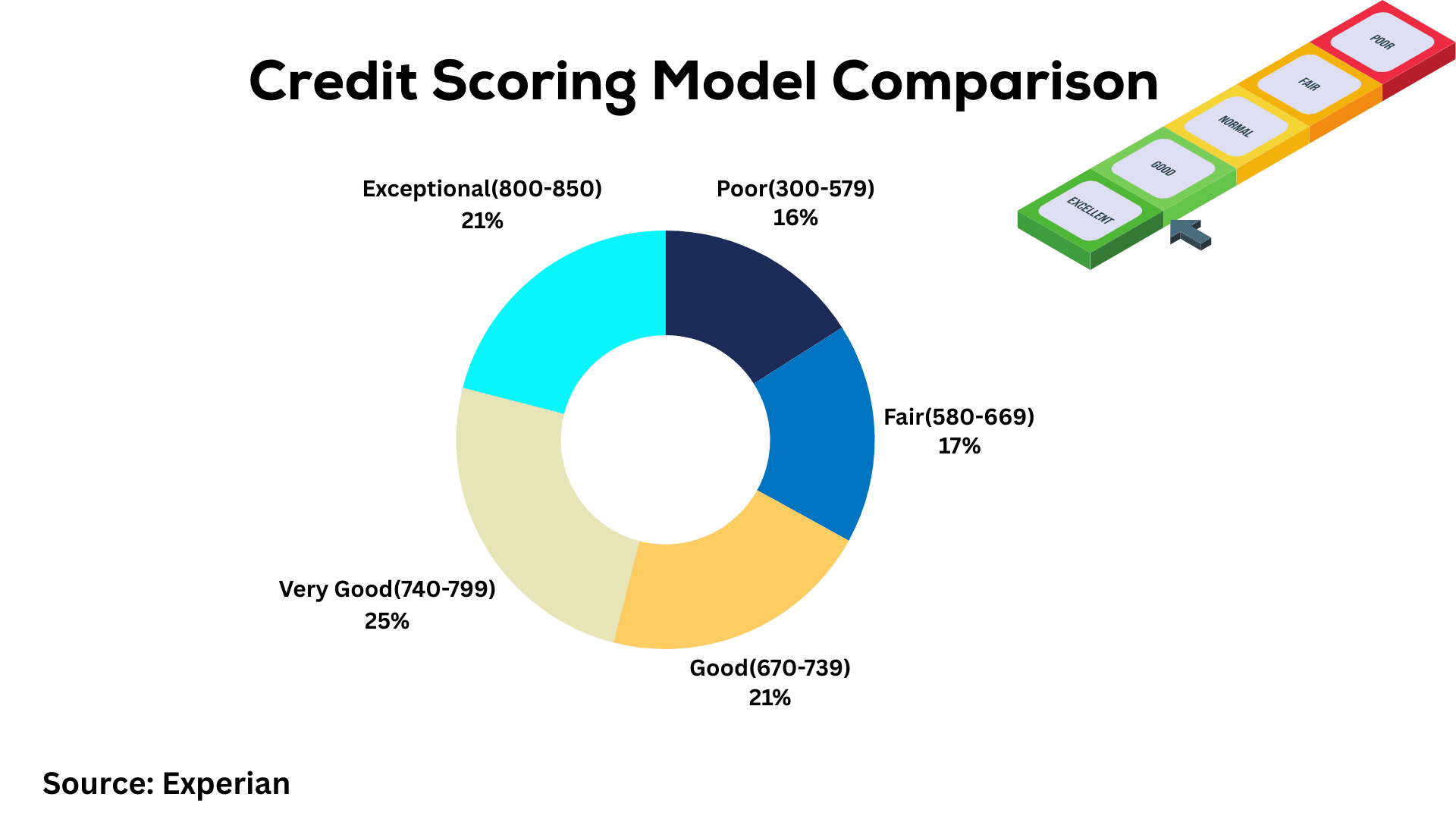Taking out a personal loan can impact your credit score, so it’s important to understand how that works. Your credit score is made up of several key factors such as your payment history, the amount of debt you have, the length of your credit history, and the types of credit you use.
When you apply for a personal loan, the lender will do a hard pull on your credit report which can cause a temporary dip in your score. But if you make your loan payments on time that can help improve your score over time by showing you can responsibly manage different types of debt.
The key is to be strategic. Avoid opening too many new credit accounts at once, and focus on making all your payments in full and on time. Paying down debt, diversifying your credit mix, and letting your credit history grow longer can all work in your favor.
Ultimately, a personal loan isn’t something to be afraid of. With the right approach, it can help build your credit over the long run. The most important thing is to understand how it all works so you can make the best financial decisions for your situation. Does this help explain it clearly? Let me know if you have any other questions!
Key Factors That Influence Credit Scores
Whether aiming for a pre approval personal loan or seeking to pre-qualify for a personal loan, comprehension of credit scores is paramount. Your credit score is a numerical representation of your creditworthiness, calculated based on several key factors. Understanding the weight of each component is crucial in managing and improving your credit profile.

1. Payment History
Payment history, accounting for 35% of your credit score is the single most influential factor. Consistent, on-time payments on all your credit accounts including personal loans, credit cards, and mortgages, are essential for maintaining a healthy credit score.
2. Credit Utilization
The amount of available credit you’re using, known as credit utilization makes up 30% of your credit score. Experts recommend keeping your credit utilization below 30% to demonstrate responsible borrowing.
3. Length of Credit History
The length of your credit history, including the age of your oldest and newest accounts, contributes 15% to your credit score. Longer credit histories are generally viewed more favorably by a legalised money lender in singapore.
4. Credit Mix
The variety of credit accounts you hold, such as credit cards, personal loans, mortgages, and auto loans, makes up 10% of your credit score. Maintaining a diverse credit mix can positively impact your creditworthiness.
5. New Credit Inquiries
When you apply for new credit such as prequalifying for a personal loan, a hard inquiry is made on your credit report, which accounts for the remaining 10% of your credit score. Too many hard inquiries in a short period can temporarily lower your score.
Understanding credit scores is essential for individuals to get pre-qualified for a personal loan. Acknowledging the significance of assessing creditworthiness enables borrowers to enhance their prospects of securing personal loans and accomplishing their financial goals efficiently.
To illustrate the impact of credit scores on personal loan approval, consider the following data:
| Credit Score Range | Approval Odds for Personal Loans |
| 800-850 | 90% |
| 740-799 | 80% |
| 670-739 | 60% |
| 580-669 | 40% |
| 500-579 | 20% |
Understanding the weight of each component and how they influence personal loan approval is the first step in developing a comprehensive strategy to improve your credit score.
Strategies for Credit Score Improvement
Boosting your credit score doesn’t have to be complicated. By employing a few proven strategies, you can take control of your financial future.
Manage Debt Through Consolidation
Consolidating multiple high-interest debts into a single personal loan can effectively lower your credit utilization, as well as simplify your payment management. This can lead to a positive impact on your credit score over time.
Understand the Impact of Credit Inquiries
Be mindful of the number of hard inquiries on your credit report, as too many can temporarily lower your score. When shopping for a personal loan, try to complete the entire application process within a short timeframe to minimize the impact of multiple hard inquiries.
Maintain a Diverse Credit Mix
Incorporating a variety of credit types, such as credit cards, personal loans, and mortgages, can demonstrate your ability to responsibly manage different forms of credit. This can positively contribute to your overall credit score.
By implementing these strategies, you can take proactive steps to enhance your creditworthiness and position yourself for better financial opportunities.
Personal Loans and Their Impact on Credit Scores
A fundamental aspect of this understanding involves utilizing tools such as a personal loan calculator to assess various loan options and estimate monthly payments. Personal loans can have a dual impact on your credit score, with both positive and negative effects depending on how you manage them.
The Short-Term Impact
When you apply for a personal loan, the lender will perform a hard inquiry on your credit report, which can temporarily lower your score. However, this impact is typically minimal and short-lived, often lasting only a few months.
The Long-Term Benefits
If you make consistent, on-time payments on your personal loan, it can have a positive long-term effect on your credit score. Personal loans can also improve your credit mix, which is another factor that contributes to a higher credit score.
Debt Consolidation and Credit Scores
Consolidating multiple high-interest debts into a personal loan can be a powerful strategy to improve your credit score. By reducing your overall credit utilization ratio and simplifying your payment management, debt consolidation can have a beneficial impact on your creditworthiness.
Understanding the relationship between personal loans and your credit score is crucial in making informed financial decisions.
Navigating Credit Reports
Your credit report is a comprehensive record of your credit history, and understanding how to interpret it is essential for maintaining a healthy credit profile.
Ensuring the accuracy of your personal information, employment history, credit accounts, and payment history on your credit report is crucial. Inaccuracies or fraudulent activities can negatively impact your credit score and hinder your ability to favorable financial terms.
Regularly reviewing your credit report from the three major credit bureaus (Experian, Equifax, and TransUnion) can help you identify and dispute any errors or discrepancies. This proactive approach can help you maintain a clean credit history and ensure your creditworthiness is accurately represented.
By staying on top of your credit report, you can effectively manage your financial well-being and navigate the complexities of personal loans and credit scores.
Understanding Different Credit Scores
While many people are familiar with the FICO score, it’s not the only credit scoring model in use. Familiarizing yourself with the different scoring ranges can provide a better understanding of your financial standing.

FICO Score
The FICO score developed by the Fair Isaac Corporation is the most widely used credit scoring model in the United States. It ranges from 300 to 850 with a higher score indicating a lower credit risk.
VantageScore
VantageScore is an alternative credit scoring model developed by the three major credit bureaus. It uses a similar scoring range of 300 to 850, with a focus on different factors than the FICO score.
Differentiating between these credit scoring models can assist you in identifying areas for improvement to enhance your overall creditworthiness. By understanding how each model evaluates your credit profile, you can tailor your efforts to address specific factors that may impact your credit score differently across different scoring systems.
Conclusion
Mastering money management starts with understanding the intricate relationship between your credit score and personal loans. By familiarizing yourself with the core components influencing your credit score, implementing proven strategies for improvement, and navigating the nuances of personal loans, you’ll be well on your way to achieving your financial goals.
Remember, a strong credit score can open doors to better loan terms, lower interest rates, and greater financial flexibility. Embrace the knowledge you’ve gained and take charge of your financial future.
Frequently Asked Questions
How often should I check my credit score if I’m considering a personal loan?
It’s recommended to check your credit score regularly, especially before applying for a personal loan. Monitoring your credit score can help you understand the potential impact of a loan application and take steps to improve your creditworthiness if necessary. Experts suggest checking your credit report and score for at least a few months before applying for a personal loan.
Can consolidating debts into a personal loan improve my credit score?
Consolidating multiple high-interest debts into a single personal loan can potentially improve your credit score in the long run. By reducing your overall credit utilization and simplifying your payment management, debt consolidation can have a positive impact on your creditworthiness. However, it’s important to note that the initial credit inquiry for the personal loan may result in a temporary dip in your score.
How do I correct errors on my credit report?
Correcting errors on your credit report is an essential step in maintaining a healthy credit profile. Start by obtaining a free copy of your credit report from each of the three major credit bureaus (Experian, Equifax, and TransUnion). Carefully review the report for any inaccuracies or fraudulent activities, and then follow the dispute process outlined by each bureau to have the errors corrected. This proactive approach can help ensure your creditworthiness is accurately represented.


